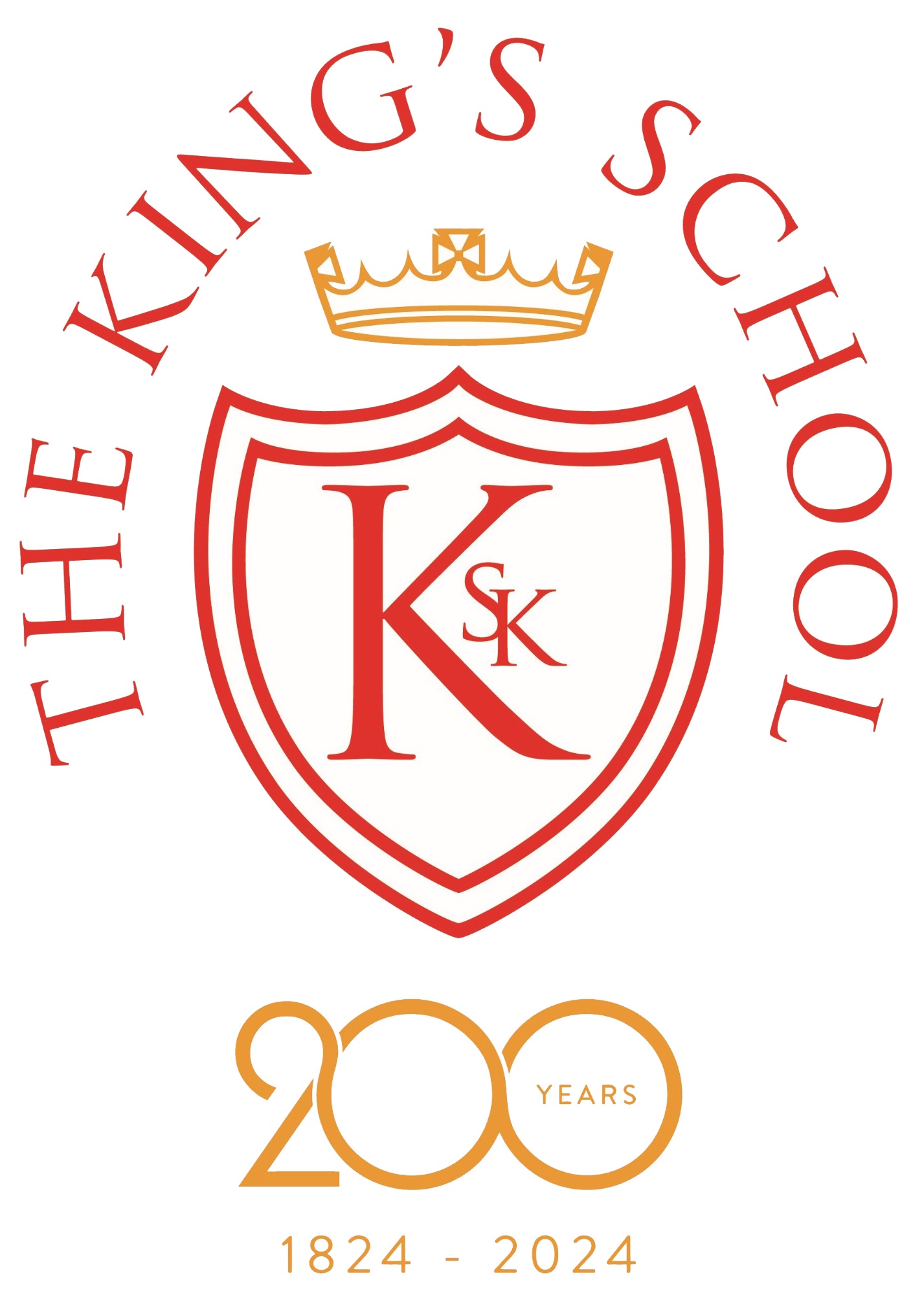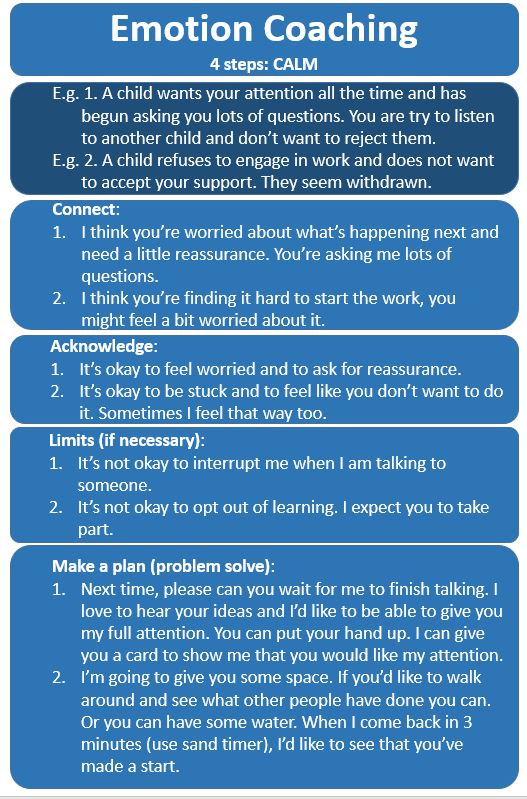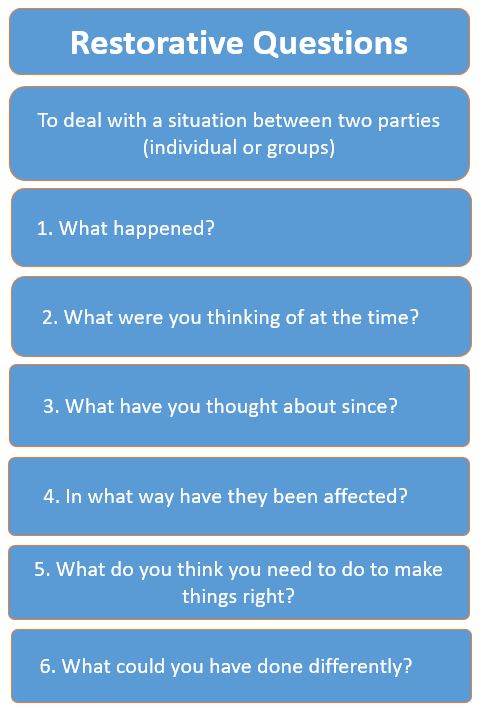Behaviour
‘Love one another as I have loved you.’ (John ch15 v12)
At The King's Church of England Primary School good manners and excellent standards of behaviour are the norm and what we aspire for every day. Positive behaviour and an understanding of rules and boundaries are essential building blocks for individual development.
The Behaviour Policy is underpinned by the Behaviour Principles set by the Governing Board.
As a Christian community, and in common with many other world faiths, we encourage the children of The King's Church of England Primary School to behave towards one another in the same way as they would expect others to behave towards them.
Behavioural Expectations
The school’s behaviour expectations are clearly displayed in all classrooms and around the school. These expectations are our school’s Golden Rules:
The Golden Rules:
- Be gentle
- Be kind and helpful to others
- Be respectful to property and equipment
- Be a good listener
- Be honest
Be the best version of you.
Class Contract:
In addition to the Golden Rules, at the start of each academic year each class, along with their class teacher, collaboratively draws up a list of class rules that are signed by every member of the class as a contract between pupils and teacher.
Behaviour Ladder:
The visual of the ladder is on display in classrooms to remind pupils of the steps in the behaviour system; staff will refer to the behaviour ladder when addressing behaviour with pupils.
Here is a useful visual of our Behaviour Policy.
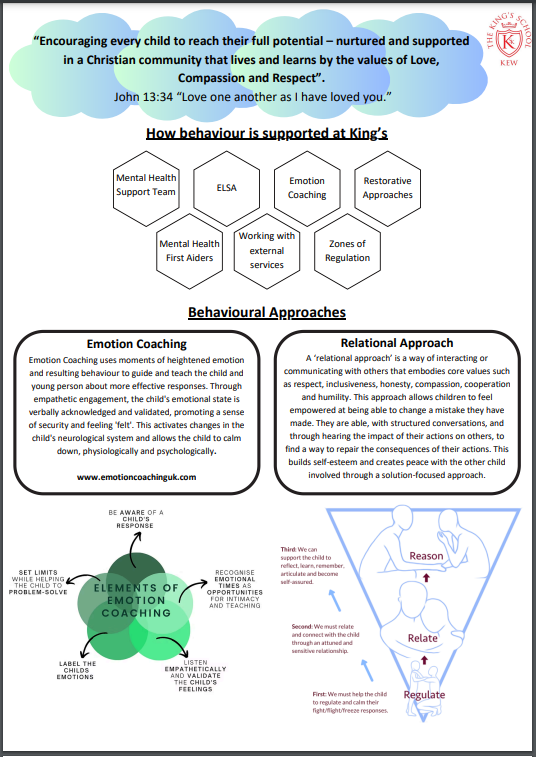
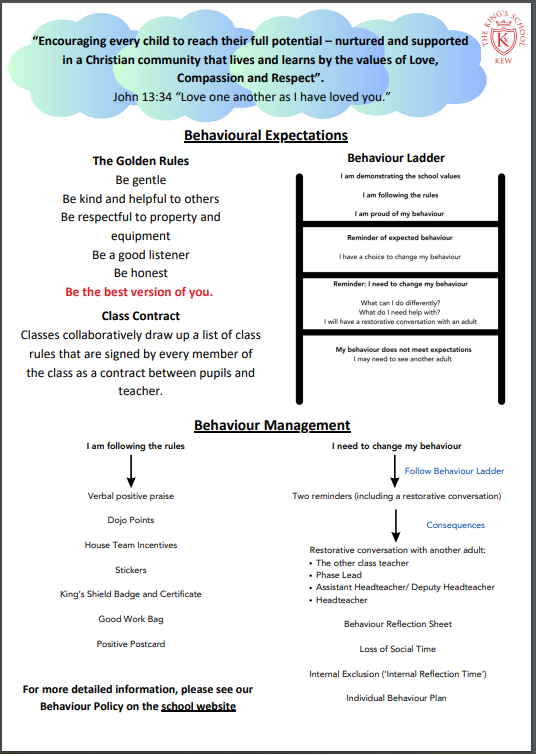
Behavioural Approaches
Emotion Coaching:
Emotion Coaching uses moments of heightened emotion and resulting behaviour to guide and teach the child and young person about more effective responses. Through empathetic engagement, the child's emotional state is verbally acknowledged and validated, promoting a sense of security and feeling 'felt'. This activates changes in the child's neurological system and allows the child to calm down, physiologically and psychologically.
Source: www.emotioncoachinguk.com
Restorative Approach:
Sometimes situations occur between individuals or groups of people. At King's, we use Restorative Approaches to support people. A restorative approach is a way of working with conflict that puts the focus on repairing the harm that has been done. It asks all parties to share what their involvement was, how the incident of conflict has affected them and to agree what needs to be done for things to be put right.
